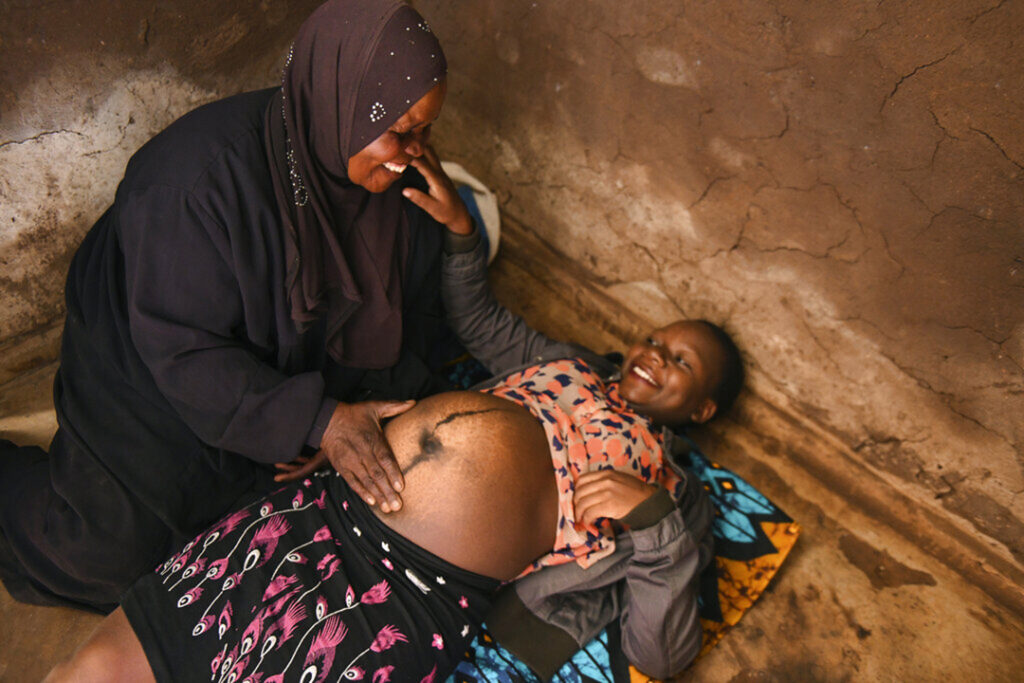ADF STAFF
Pregnant women who are hospitalized with COVID-19 have a higher risk of dying than those who are not pregnant. They are also more at risk of developing serious complications if they have underlying conditions such as tuberculosis, HIV or sickle cell anemia, according to a recent study by the Africa Forum for Research and Education in Health (AFREhealth).
The study of 510 pregnant women in six sub-Saharan African countries looked at the impact COVID-19 had on their health between the beginning of the pandemic in March 2020 and the end of March 2021. They were compared with 403 women who had COVID-19 but were not pregnant and a similar number of women who were pregnant without COVID-19.
The results showed that pregnant women with COVID-19 required intensive care and additional oxygen. They were five times more likely to die if they were hospitalized for COVID-19. Pregnancy doubled the chances that a woman hospitalized with COVID-19 would die.
“It’s a bidirectional relationship: pregnancy impact worsened the outcome for COVID-19. At the same time, COVID impacted the outcome for pregnant women,” the study’s lead author, Dr. Jean Nachega, an epidemiologist and professor at Stellenbosch University in South Africa and the University of Pittsburgh in the U.S., told eNCA news.
An INTERCOVID study of pregnant women in 18 countries found similar outcomes, but those studies drew only 5% of their participants from African countries (Ghana and Nigeria). The AFREhealth study looked at outcomes from the Democratic Republic of the Congo, Ghana, Kenya, Nigeria, South Africa and Uganda. South Africa provided the majority of research subjects.
While Africa’s population is younger than that of Europe or North America, the continent has higher levels of certain diseases such as TB, HIV and sickle cell, which can complicate both pregnancy and COVID-19 infections.
“We cannot extrapolate the results from the United States or from Europe to the continent,” Nachega told eNCA. “That’s why we wanted to conduct this study on this special population.”
The AFREhealth study was published at a time when countries across Africa are experiencing a rise in new COVID-19 infections driven by the omicron variant. South Africa’s fifth wave ended in early June. Kenya recently announced its sixth wave of infections.
The omicron variant and its sublineages, including BA.2, BA.4 and BA.5, have shown themselves to be capable of overcoming immunity created by previous COVID-19 infections. As a result, people who have recovered are at risk of reinfection.
Nachega said he hopes his study pushes more African countries to encourage pregnant women to protect themselves from COVID-19 infections. Since the start of the pandemic, misinformation has caused many pregnant women in Africa to avoid medications and other actions that can protect them from infection.
“There is a need for education and a need for a community campaign for this special population to prevent morbidity and mortality,” Nachega said.

